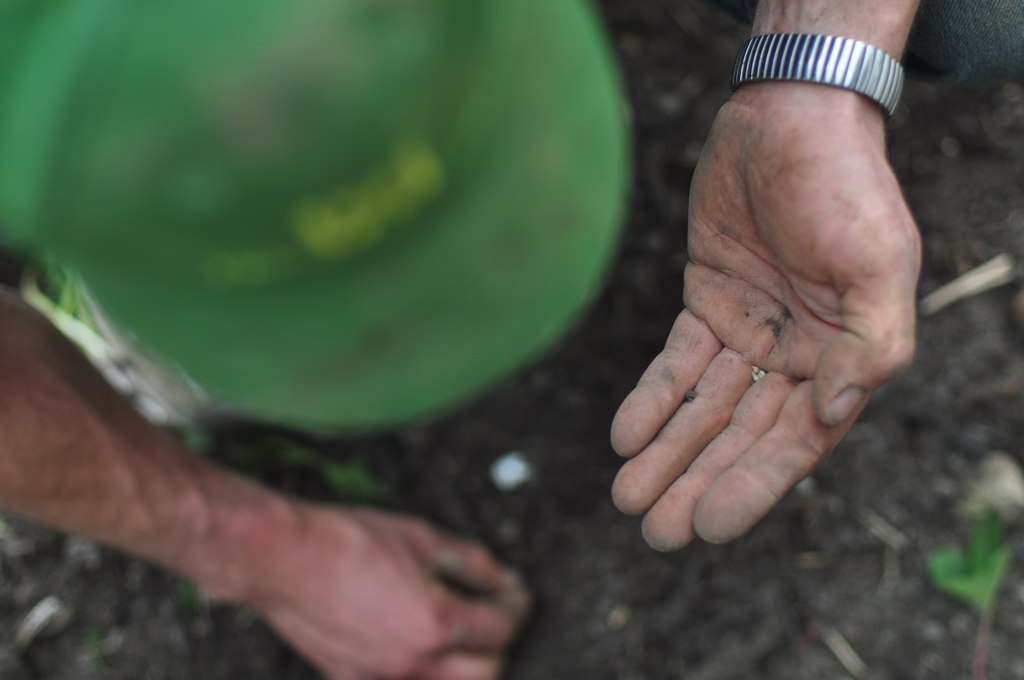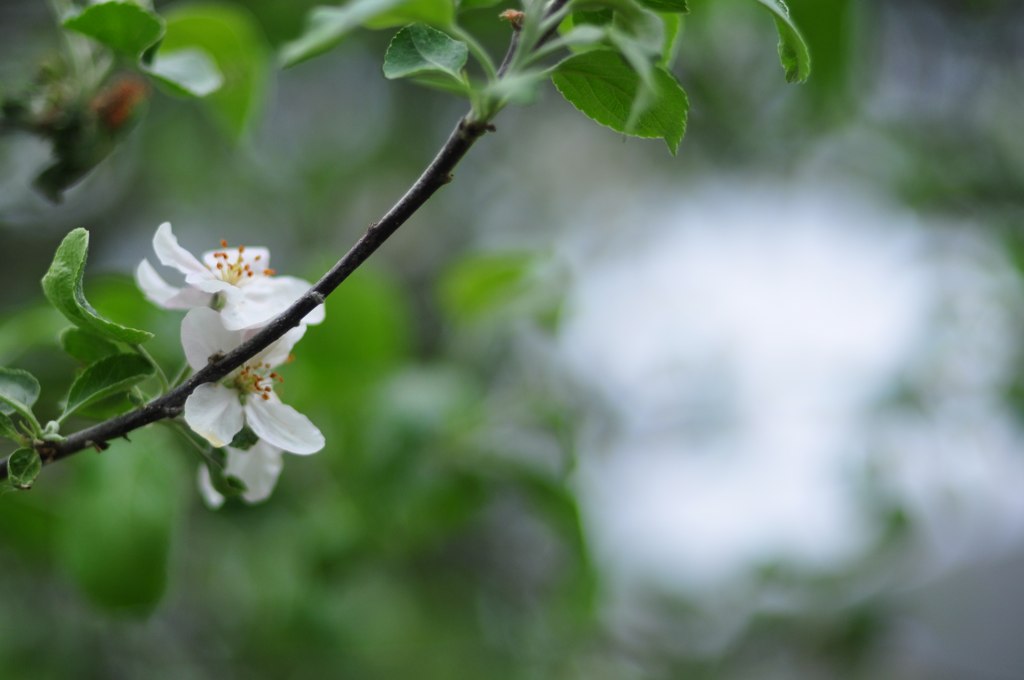Jamin Goggin and Kyle Strobel have been on a unique pilgrimage. For the past six years they have traveled the world to sit with sages of the faith, people like Marva Dawn, John Perkins, and Jean Vanier, Eugene Peterson,. Their journey was marked by a deep and weighty question: What does power in weakness for the sake of love really look like? They believe this question cannot be answered by looking to the seemingly powerful, but rather by sitting at the feet of those who have embraced the way of Jesus for decades. Jamin and Kyle have offered us all a great gift in documenting their journey in their new book The Way of the Dragon or the Way of the Lamb. As they reflect on the wisdom gained from these sages, Jamin and Kyle acknowledge their own temptations to embrace a worldly kind of power and cast a beautiful vision for power in weakness in our daily lives. It’s a grace to welcome them to the farm’s front porch today…
guest post by Jamin Goggin and Kyle Strobel
Everything we do taps into a deeper reality of power: power from the self for control — or power from God for love.
Power for control gets things done quickly and is the easiest way to “make something of yourself.”
This is the power we often give in to.
We long for value and significance.
We believe that human flourishing is achieved when all our weaknesses are extinguished and our talents, gifts, and abilities are fully actualized.
Often, in moments of exposed weakness, failure, and sin our chosen path of power rears its head most vividly.
We feel shame, and so turn to self-help, self-condemnation, or willpower, to defeat it, but it doesn’t work.
We seek to keep our sins concealed by putting on false virtue.
We push forward our gifts and abilities as a way of hiding our weaknesses. A flourishing life, becoming a substantial and weighty person, requires that we take another path entirely.
It is a reality formed over time as we come to abide in Christ in the truth of our weakness. In short, a flourishing human existence finds its source of power in God — and is demonstrated through a life of love.
Over the past six years the Lord has directed us on a pilgrimage to seek out sages of the faith who have embraced the way of kingdom power and are truly weighty of soul.
It was this journey that led us to the home of James Houston, a man mentored by C.S. Lewis, who left the magisterial academic halls of Oxford to start Regent College in Vancouver in order to start a school for mere Christians.
As we sat with James, it was clear that he had been on this path with Christ for decades, and the work of wisdom in his life was palpable.
But the most profound aspect of our time with him wasn’t his brilliant analysis of theology, his stories about Lewis, or even his pastoral counsel to us (and those were all profound).
What was most profound was his love for his wife, Rita.







Since our conversation with James, Rita has passed away.
At the time of our visit with the Houstons, she was struggling with dementia. Rita was an incredibly sharp and witty woman, chiding James for saying something “just because it sounded good,” and holding her own in any conversation.
So she was able to hide her sickness well. But when she left the room for a nap and returned, she would want to know why James hadn’t told her he had people over.
This happened a handful of times.
When Rita went to rest, we asked James how they were doing, and his answer was somewhat shocking.
James explained, “People will say to us, ‘It is so tragic that this has happened.’ But that isn’t true.” James smiled.
“This is the best time of our lives together. Things have never been better. Why? Because never have things been more relational. I really mean it. It is the best time of life, because it is stripped of all the nonessentials.”
James knew that their union of love was what held them together even as Rita’s memory failed.
Growing old may appear tragic, but it is a part of the rhythm of reality.
The real tragedy is the person who has lived a lifetime in fantasy, trying to deny weakness, and is left with nothing because he or she failed to become weighty of soul.
But when weakness is the way, these days are not tragedies but opportunities.
James offered a picture of what it means to be deeply human, to truly flourish in marital relationship. What was needed most was not a skill set, mental capacity, or ability, but love.
He saw a person in full, not in part, when he looked at his wife.
This view is impossible if we continue to buy into the lie that human flourishing is about self-actualization.
That lie, James explained, has affected the way we view the person. We believe the truly flourishing person is bright, socially adept, and healthy. But what do we do with people who have dementia or Alzheimer’s? Or what about those in our churches who have physical or mental disabilities?
According to our cultural values of power, their lives have functionally ended.
Yet if identity and personhood are defined not by earthly power but by God’s grace, then we are in a different position.
If we lose our mental or physical capacities, a thorn in the flesh remains; but we are still capable of flourishing in dependence upon God.In fact, it is here where we can be most open to the way of life God calls us to.
The sun was setting and we were about to leave.
James and Rita sat side by side on the couch while Jamin and I listened intently to James talking about living in weakness.
Our final question was only meant to put a period at the end of a profound couple of days with the Houstons, but the answer took us off guard.
We asked, “Where have you learned most significantly that strength really does come in weakness?”
As James leaned forward to answer, Rita muttered under her breath, “I could tell you after a few years.”
Jamin and I sat silently, knowing that this disease was the great trial of her life; but then James inserted his own thought.
“You see,” he started, looking over at his bride, “Rita is worried that as she loses her memory, she will forget Jesus.” James glanced at us but continued to talk to her.
“So I remind her: What matters is not that you remember Him, but that He remembers you.”
There, in summary, is the flourishing human being.
As James and Rita pressed into frailty and disability, they were shifting their identity and value more and more onto Jesus.
This is not an ability that just comes to us.
They were able to see the end of life as an opportunity —
because they had lived lives of dependence.
Jamin and his wife live in Escondido, California with their four children where Jamin pastors, and Kyle and his wife live in Fullerton, California with their two kids where Kyle is a professor at Biola University.Jamin and Kyle’s newest book together, The Way of the Dragon or the Way of the Lamb: Searching for Jesus’ Path of Power in a Church that has Abandoned It narrates their own struggle to accept Jesus’ way of power and how important it is for the church today. They paint a richly biblical vision of power through weakness.
They invite readers to join them on an adventure around the world, seeking out great sages of the faith with uncommon wisdom to offer those traveling the path of Christian life. As readers eavesdrop on the authors’ conversations with people such as J. I. Packer, Marva Dawn, John Perkins, Jean Vanier, James Houston, and Eugene Peterson, they begin to piece together the new-old reality of following Jesus today. In the end, The Way of the Dragon or the Way of the Lamb offers a compelling MUST READ vision of the way of Jesus that will challenge both individual believers and the church as a whole. Truly: an UNFORGETTABLE book
[ Our humble thanks to Thomas Nelson for their partnership in today’s devotion ]








